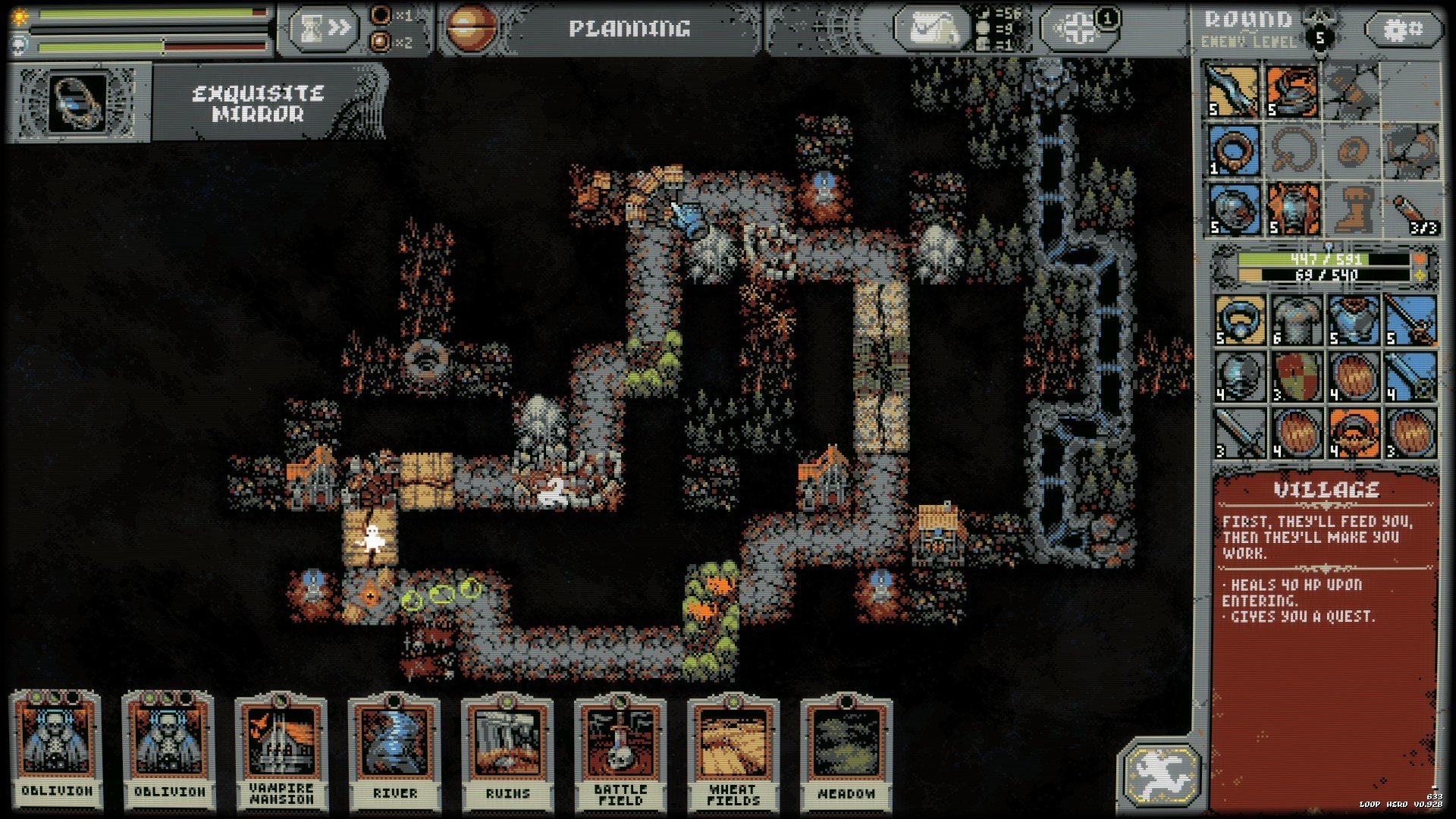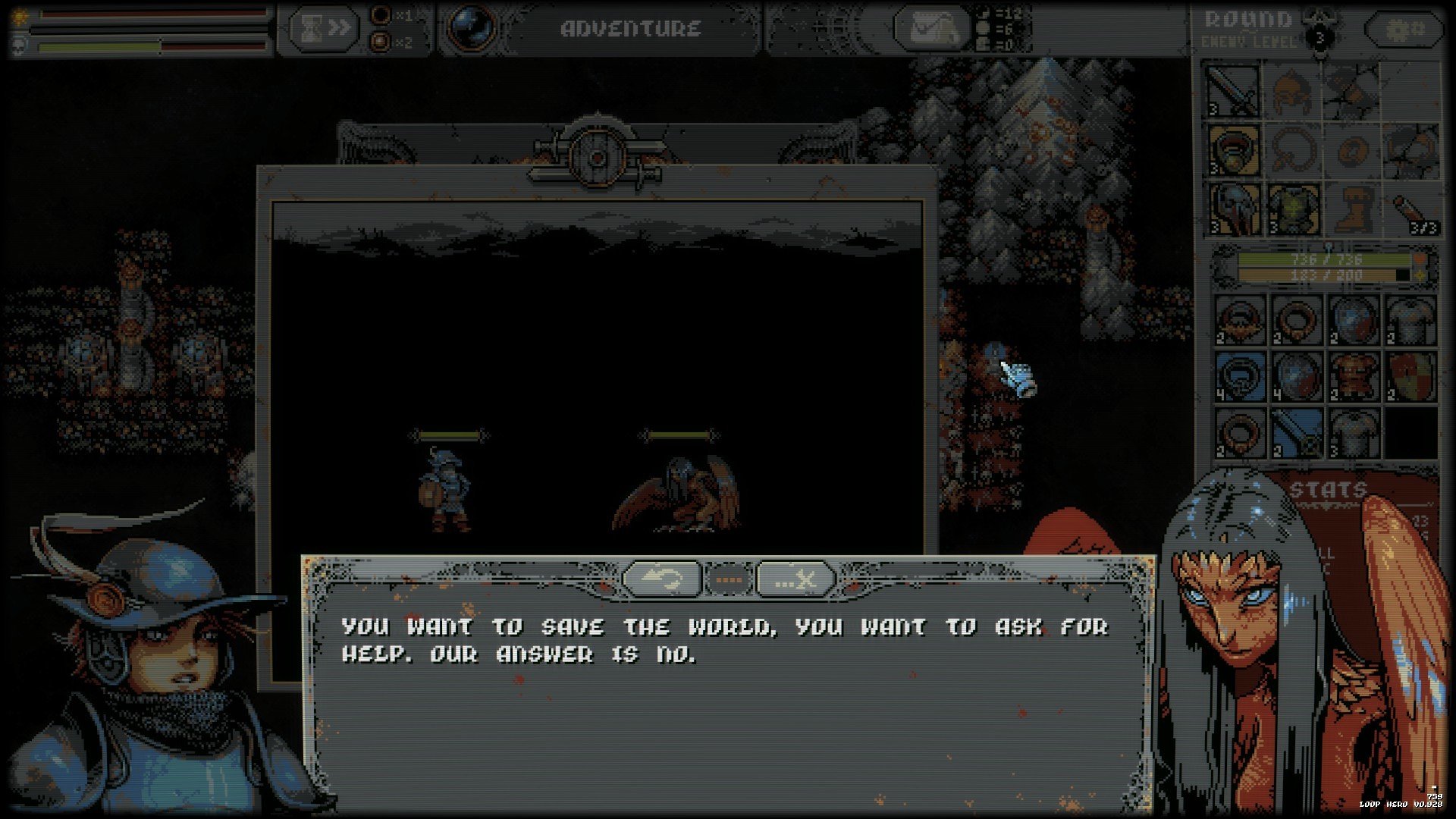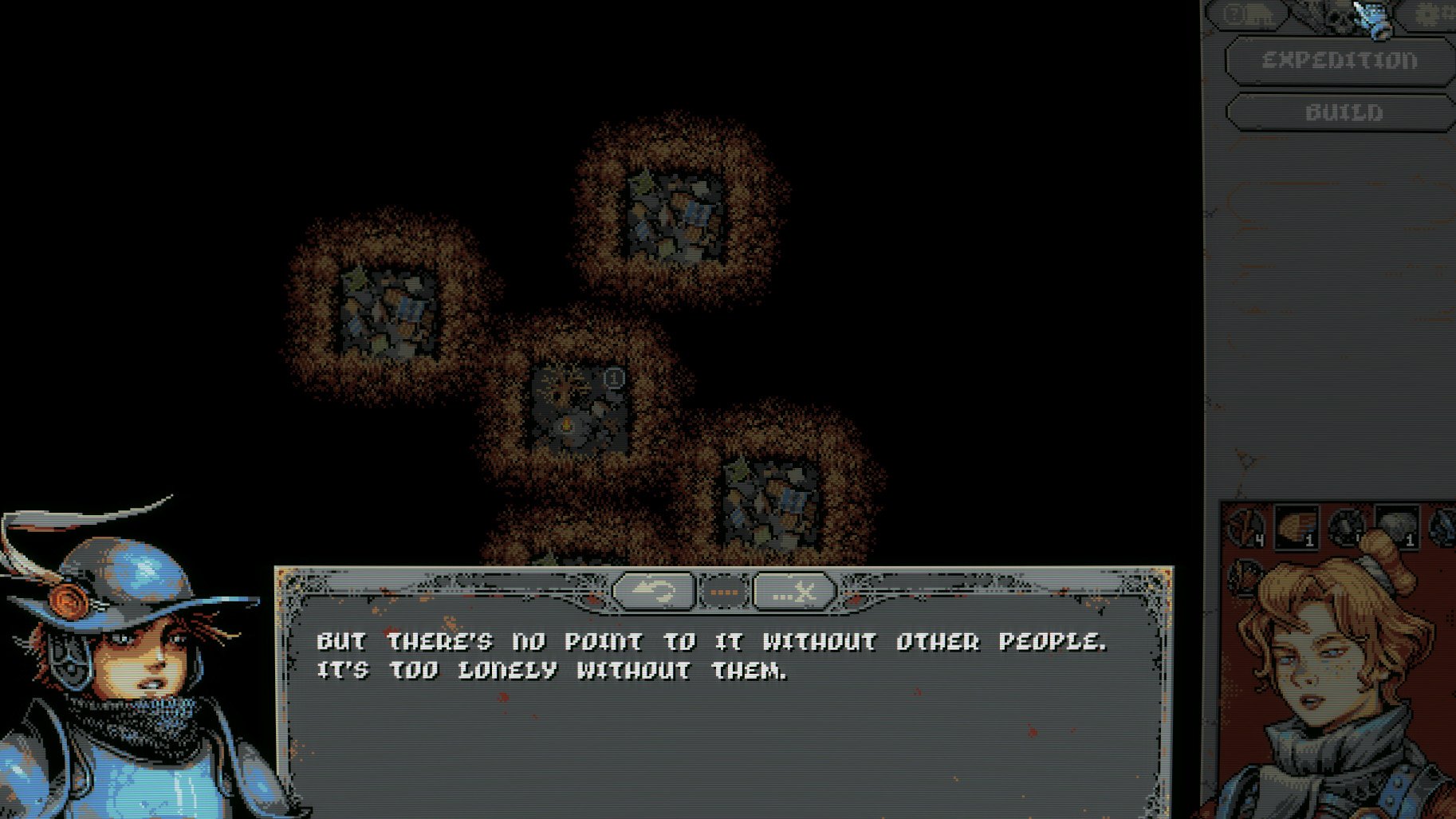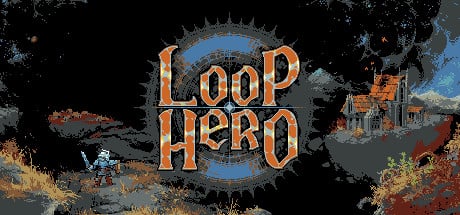Why does Loop Hero feel so damn good to play?
Everything comes back to the circle.

All the latest news, reviews, and guides for Windows and Xbox diehards.
You are now subscribed
Your newsletter sign-up was successful
Loop Hero is called Loop Hero for a reason. The titular loop represents everything in this new indie gem from Four Quarters and publisher Devolver Digital, whether you're paying attention to the circular gameplay or the rough, semi-nihilistic but ultimately hopeful structure of the game's story. You might think that going around and around in a circle for hours wouldn't be compelling, but in this case, you'd be wrong. Loop Hero succeeds as a game for a multitude of reasons, but it ultimately comes back to that loop — specifically, the gameplay loop.
In Loop Hero, you play an unnamed hero without any memories in a dark, empty world. You embark on a journey, going around a loop hoping to find something, anything. However, as you walk, you build the world out, bringing people and creatures into existence. Along the way, you'll discover what happened to the world and who is responsible for bringing it to an end. It's a large ask, but in the meantime, you walk around a loop.
What's in a loop?
The "loop" here is both physical and metaphorical. Each round, you go around the generated track, building up the course as you go. With a deck of cards, you place both the obstacles and sanctuaries; over time you can unlock different classes and abilities, like crafting, which you can use to grant yourself bonuses. As you unravel the story, you'll also unlock strangers in a village nearby. You're building out your strategy with the cards, but the game will also reveal itself to you over time.
The more loops you complete, the more you learn about what you've been dealt (again, both physically and metaphorically). At first, the cards offer the prospect of monsters to fight. Cards like the Cemetery will spawn a skeleton every three days while the Vampire House will create vampires on adjacent tiles. You'll begin the game just putting them down on random spots on the track to see what happens. However, you'll soon learn that you can start combining cards to make your life just a little bit easier. For example, putting a Grove card down will spawn a Ratwolf every two days, but you can place a Blood Grove tile next to them, which will allow enemies at 15% or below HP to get swallowed up by its roots. Now, you'll be strategizing where you put Grove cards so you can fully maximize a Blood Grove.
You'll think you've finally come to understand the game loop, but there's a kicker. Sure the Blood Grove will take out weak enemies for you, greatly reducing fight time, but then the Flesh Golem emerges from the grove, made out of all the enemies you've fed to it. Elsewhere, the Battlefield card might give you a chest with an item in it every day, but any enemy with a soul that dies in an adjacent tile has the chance to come back as a ghost.
Even once you've conquered the strategies presented to you, the game allows you to unlock parts of your village, which will then unlock more cards with more enemies. You'll be minding your own business during a run when you get jumped by bandits that seemingly came out of nowhere or harpies that flew down from the sky. Loop Hero will constantly throw new mechanics, abilities, and enemies at you while upping the difficulty as you go. It's similar to a roguelike in that way, with the addicting core loop coming from trying out new strategies and succeeding.
But does the loop mean anything?

As the game gets more complex, you learn more about the story and the world you're trying to save, but you'll also unlock even more questions. Can a world filled with monsters, bandits, and evil magic be worth saving? Is this dark, dingy, brown world worth living in? Your hero is the only one who can remember the old world, but if it's filled with all of these horrors, what is the point?
All the latest news, reviews, and guides for Windows and Xbox diehards.
The answer might be no, but that almost doesn't matter. The mystery of what happened is too intriguing (even if it might be obvious), and there's still so much to do. The more you have to deal with, the more frantic your game becomes. You have more strategies to learn and more enemies to tackle. It almost doesn't matter what the story is at that point because you have a lot on your plate. And as you've been taught, there will be more to come. It still lingers in the background though, not overwhelming the space but being just out of reach so that you'll want to play more to reach it.
And in the end, you're still going around and around in the same circle.

Loop Hero, which is one of the best PC games right now, is extraordinary in its simplicity. It's just a game where the player travels around a set path setting up obstacles along the way. However, it manages to increase in difficulty steadily and introduce varied elements to change play up. The story is vague enough that you want to learn more, and since you have to put in more game time to unlock those answers, it propels you forward. The gameplay is complex enough as well that you'll be going through a lot of trial and error to figure out how to best tackle what's ahead.
You also might be in the never-ending loop, but in the distance, away from your course, you can place mountains and meadows, some of the few cards that provide buffs to your character instead of dangers or double-edged swords. It's a constant reminder that the loop isn't everything, even if it's the key component of a game called Loop Hero. Either way, you'll be going around in a circle, hoping for something new to change each time.
Loop Hero is now available on Steam and the Epic Games Store.

Carli is the Former Gaming Editor and Copy Chief across Windows Central, Android Central, and iMore. Her last name also will remind you of a dinosaur. Follow her on Twitter or email her at carli.velocci@futurenet.com.


